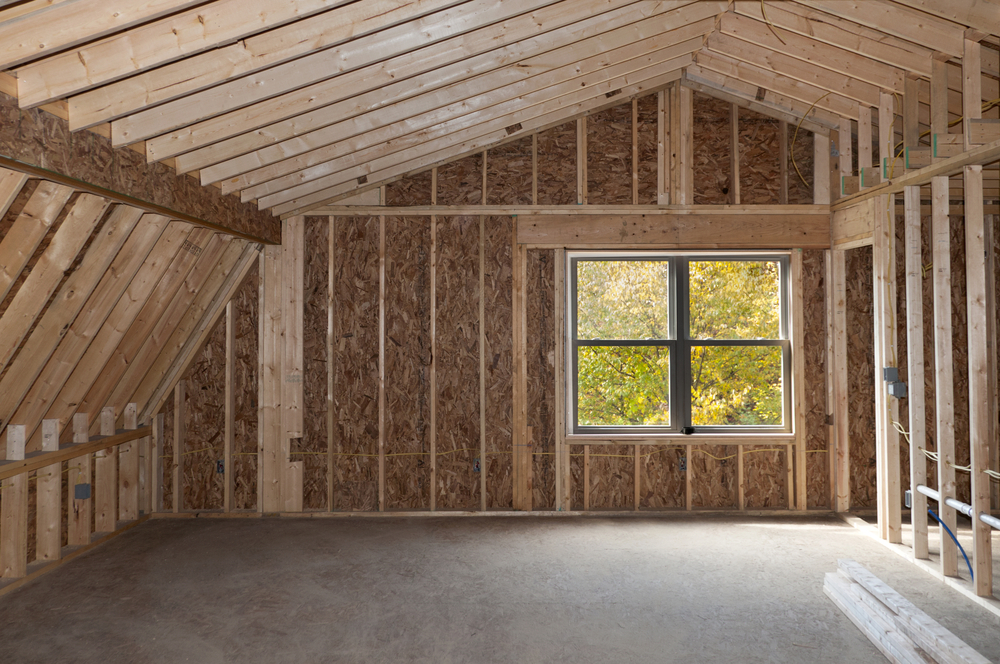
When considering expanding your home, it’s crucial to approach the project with careful planning and foresight. A home addition can provide much-needed space, enhance your home’s value, and cater to your evolving needs. However, before you embark on this significant investment, it’s essential to consider various factors to ensure the success of your project. Whether you’re planning a custom home expansion in Langhorne, Pennsylvania, or anywhere else, there are important decisions to make and key elements to consider throughout the design and building process. In this article, we will explore the most crucial things you need to take into account before you build a home addition.
Assessing Your Needs and Goals for the Addition
The first step in designing a perfect home addition is identifying the purpose of the project. Why do you need more space? Is it to accommodate a growing family, add a home office, create a larger kitchen, or provide extra living areas for guests? Knowing the specific goals of your expansion will guide your design decisions and help ensure the space meets your needs. For instance, if you work from home, a dedicated office space with appropriate storage and lighting will be key. If you’re adding a playroom for your children, you’ll need to think about safety, accessibility, and layout.
Additionally, it’s important to evaluate the long-term impact of your home addition. You may want to consider whether the space will accommodate future needs or changes in your lifestyle. For example, a custom home expansion in Langhorne, Pennsylvania, might be designed to suit your current requirements, but it’s worth thinking ahead about how your needs might evolve over the next five to ten years. By taking a long-term view, you can ensure that your addition will remain functional and valuable for years to come.
Understanding Your Budget and Financial Considerations
The financial aspect of a home addition cannot be overlooked. Before diving into any design plans or contacting contractors, it’s essential to establish a clear and realistic budget. Home additions are significant investments, and costs can quickly add up depending on the size, scope, and complexity of the project. Costs for materials, permits, labor, and design services must all be factored in, and unexpected expenses can arise along the way.
When setting your budget, it’s a good idea to account for a contingency fund, usually around 10 to 15 percent of the total cost, to cover unforeseen issues. Another crucial element is determining whether you will finance the addition through savings, a home equity loan, or another form of credit. Understanding your financial capacity and planning ahead will help you avoid stress and setbacks during the building process.
Furthermore, while it’s tempting to focus on the upfront costs, it’s also important to consider the potential return on investment (ROI) your home addition will provide. If your goal is to increase your home’s resale value, make sure to research which types of additions offer the best returns in your specific area. For example, a custom home expansion in Langhorne, Pennsylvania, may have different ROI prospects than an addition in a larger metropolitan area. Consider consulting with real estate experts to understand the market dynamics and make informed decisions.
Navigating Local Zoning Laws and Permits
Every municipality has its own set of zoning laws and building codes that regulate home construction and expansions. This is especially true in areas like Langhorne, Pennsylvania, where regulations can vary depending on the location within the town and the type of addition you’re planning. Before you begin any work, it’s essential to research and understand these regulations, as they will have a direct impact on your project.
Zoning laws typically determine where and how you can build your addition. They may impose restrictions on the size, height, and placement of your new structure, as well as requirements for parking, landscaping, and setbacks from property lines. For instance, if you’re planning to expand vertically, you may need to ensure that the addition doesn’t infringe on the space of your neighbors or violate height restrictions. If you’re building outward, setback requirements will dictate how far your addition can extend from your existing house and property boundaries.
Obtaining the necessary permits is another crucial aspect of the planning process. Permits are required for most home additions, and failing to secure them can result in fines, delays, or the need to tear down the addition. Work with a qualified architect or contractor who is familiar with the local zoning laws in Langhorne to navigate this process. Having the proper permits not only ensures that your home addition is legally compliant, but it also contributes to the safety and structural integrity of the work.
Choosing the Right Contractor and Design Team
Selecting the right professionals to help bring your home addition to life is one of the most important decisions you will make. From architects to contractors, the team you assemble will have a direct impact on the quality, timeline, and overall success of the project. Begin by researching potential contractors with experience in home addition projects, particularly those who are familiar with custom home expansion in Langhorne, Pennsylvania, or similar communities. A local contractor will be familiar with the area’s building codes and zoning regulations and will likely have established relationships with local suppliers and subcontractors.
When hiring an architect or designer, be sure to choose someone whose style and experience align with your vision for the space. It’s important that your architect understands your needs, both in terms of functionality and aesthetic preferences, so they can design a space that works for you. Take the time to view their past work and check references to ensure they have a proven track record in designing home additions.
In addition to the designer and architect, you’ll also need a reliable contractor to handle the construction. Choose a contractor who is licensed, insured, and experienced in home additions. Ask for detailed bids from multiple contractors and ensure they include a clear timeline and breakdown of costs. Once you’ve selected your team, maintain open lines of communication to ensure the project stays on track and that everyone is aligned on expectations. A solid partnership with your design and construction team is crucial for a smooth and successful project.
Maximizing Your Home’s Value and Functionality
Beyond the initial planning and design, it’s essential to think about how the addition will impact both the value and functionality of your home. An effective home addition should improve your living experience while also adding to the property’s resale potential. Whether you’re expanding a kitchen, adding a bathroom, or creating a larger living room, make sure that the design integrates seamlessly with the existing structure of your home. A well-designed addition will look like it was always part of the house rather than an afterthought.
Consider how the new space will interact with the rest of your home. Will it enhance the flow of the layout? Does it allow for better natural light, ventilation, and energy efficiency? For example, if you’re planning a custom home expansion in Langhorne, Pennsylvania, consider adding large windows or glass doors to bring in natural light and make the space feel larger. Open floor plans are often desirable, as they allow for flexibility and easier flow between rooms.
In terms of value, a home addition that increases the usable space of the house is generally a good investment. Expanding a kitchen, adding a second story, or converting an attic into a living area can all boost your home’s appeal to potential buyers. However, you should avoid overbuilding for the neighborhood, as an addition that’s too extravagant for the area might not provide a favorable return on investment.
Conclusion
Designing the perfect home addition involves more than just creating a bigger space; it’s about thoughtful planning, budgeting, and making informed decisions every step of the way. By assessing your needs, understanding your budget, adhering to zoning regulations, and working with experienced professionals, you can ensure that your custom home expansion in Langhorne, Pennsylvania, or any other location is a successful and rewarding endeavor. The right addition can enhance your home’s functionality, aesthetics, and value, turning your vision into a reality.
